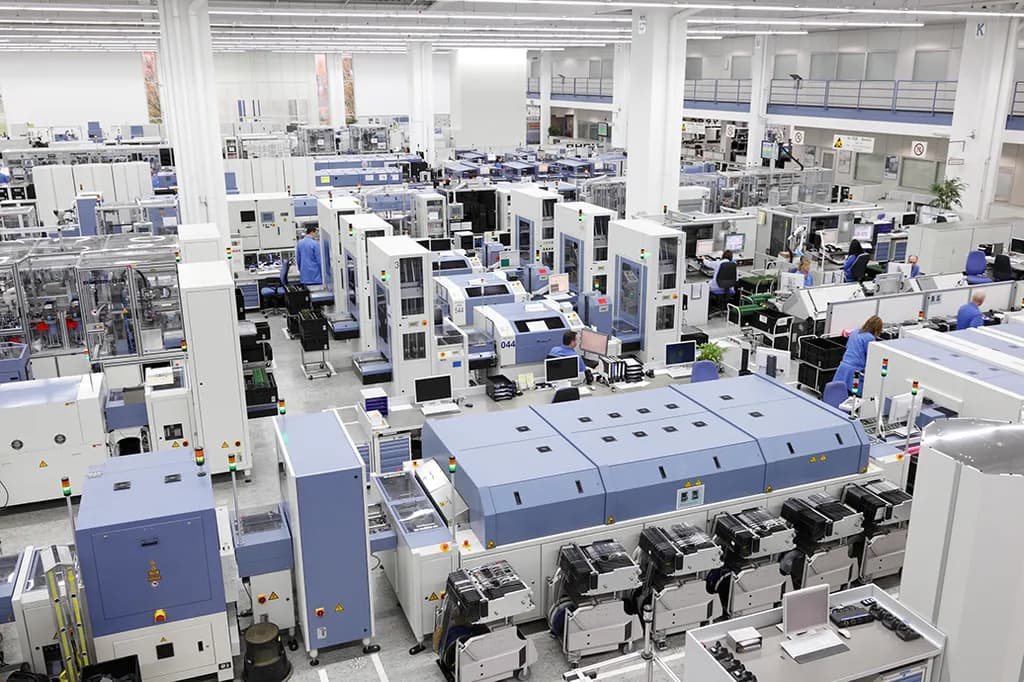The Dynamic Future of Manufacturing
Smart factories are crucial to the digital transformation of industry. In a smart factory, real-time data is collected and analyzed from machinery, production lines, and operational processes using Internet of Things (IoT) technology. This technology allows for increased automation, reduced downtime, and enhanced product quality. Additionally, smart factories can improve predictions and accelerate decision-making by integrating manufacturing systems with artificial intelligence (AI) and machine learning.


Reduced Downtime
Monitoring equipment status in real time and predicting when repairs are needed to minimize interruptions.

Increased Productivity
Automatically optimizing processes to enhance efficiency and reduce resource waste.

Warehouse Management
Utilizing sensors for real-time inventory management in the warehouse.

Save Energy
Implementing smart tools to efficiently manage consumable resources.

Supply Chain Monitoring
Enhance coordination between suppliers to minimize delays.

Fleet Management
Improved and coordinated transportation processes for inbound and outbound logistics.
Statistics Don’t Lie!
30%
increase in Productivity
McKinsey & Company
20%
Reduction in Energy Consumption
Digi.com
25%
Reduction on Operating Costs
Deloitte
Real World Transformers!
Siemens, Germany
Siemens has successfully reduced the production error rate in its digital factory in Amberg, Germany, to less than 0.001% with the help of the Internet of Things (IoT). The factory utilizes over 1,400 sensors to monitor production processes, which has significantly decreased material waste. Additionally, Siemens has achieved a 10% reduction in operating costs and a 75% reduction in human errors.

Foxconn Factory, China
By implementing smart technologies on its production lines, Foxconn has improved factory efficiency and decreased the production cycle time by an average of 20%. The company has also experienced a 30% reduction in failures by utilizing real-time equipment monitoring through the IoT.

General Electric Factory, USA
General Electric leverages Predix technology and digital platforms to analyze vast amounts of production data in its smart factories. This approach has resulted in improved machine performance, a 15% reduction in energy consumption, and a 20% decrease in equipment breakdowns. Furthermore, these factories have increased operational efficiency by 25%.



